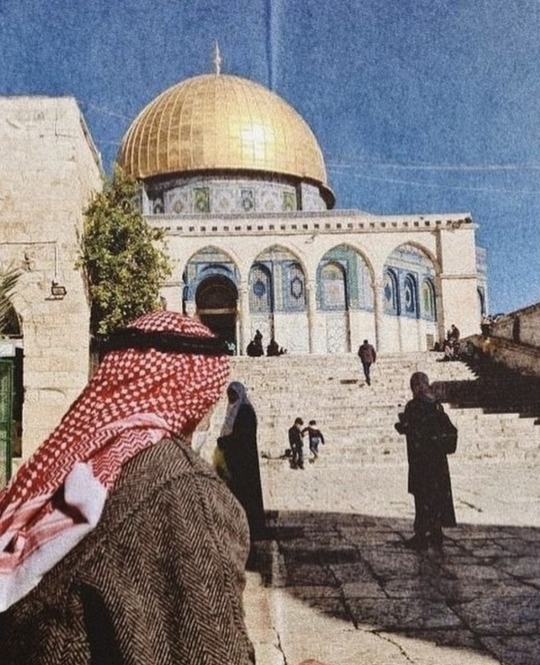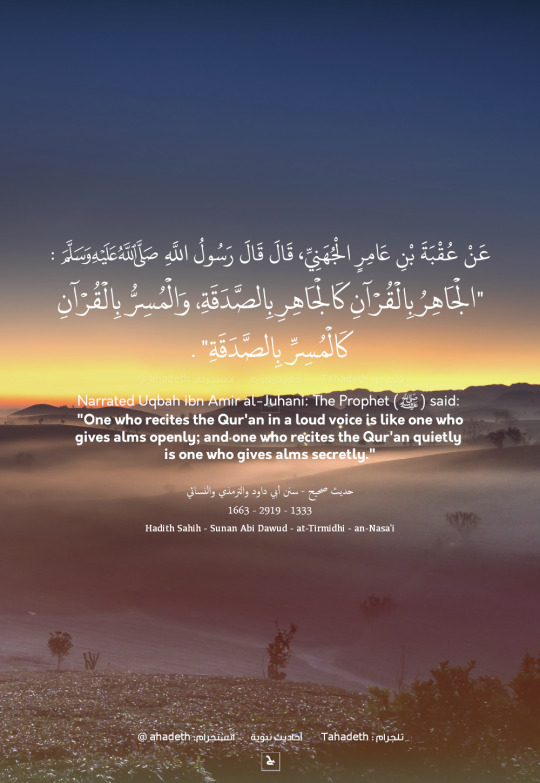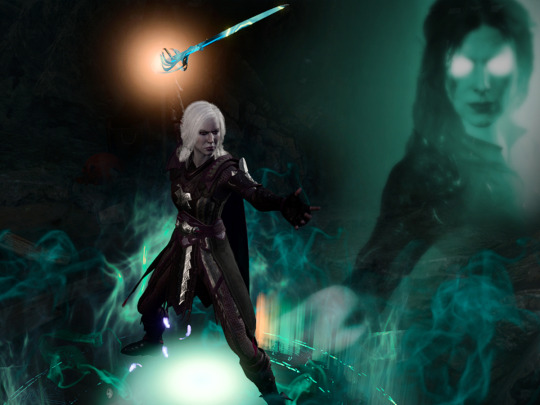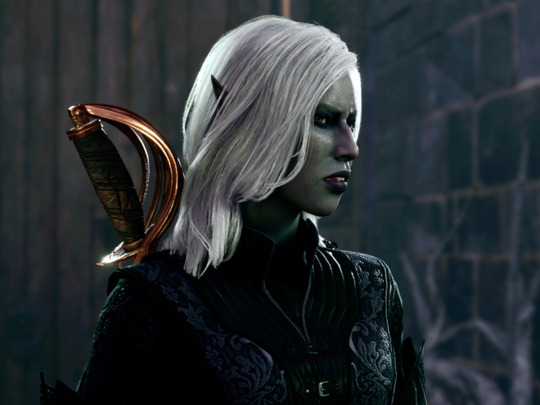#translation: somali
Explore tagged Tumblr posts
Text
Come to me softly - Xasan Ganey - Somalia
Translator: Ibrahim Hirsi (Somali)
Her:
You, the bloomed Qaydar tree,
drenched by a rain,
leaves a fragrant wind which shakes,
You, my qudhac flowers
You are the one
I’ve chosen,
The one I desire.
You who my soul follows
You will soon be refreshed
So come to me slowly.
Him:
You who are sweet like
the mareer fruit
That grows with beauty
And fragrant like the Qawl
You who cool
My smouldering heart
Covered in wounds
You the precious one
You will soon be refreshed
So come to me slowly
Her:
You who are like
the rain overflowing
the channels
In a lush green
You, who are a vessel full of ghee
Of which I’ve taken my share —
You, my strong ram.
You who my soul follows
You will be refreshed
So come to me slowly.
Him:
You who are
a rainbow,
sashes of colours,
And the freshly-fallen rain
You who are spring’s greenery,
With new shoots for grazing
And on places to camp.
You, the precious one.
You will be refreshed
So come to me slowly.
7 notes
·
View notes
Text
youtube
Florida Attorney and Youtuber Andrew Esquire (LegalMindset) showing flower arrangements to be placed at the Statue of Peace (Comfort Women Memorial) located in Itaewon-Dong, Seoul in response to the american nuisance streamer known as Johnny Somali (legal name Ramsey Khalid Ismael) recently disgracing the statue live on stream.
Esquire's community contributed to covering the flower costs through ko-fi donations.
Additionally, Esquire stated that he plans on placing flower arrangements at the second comfort women memorial north of Seoul Station that Johnny Somali also disgraced sometime in the next few days.
The flower featured in all of the main arrangements is the white chrysanthemum flower, traditionally used for memorials in South Korea. White chrysanthemums are used to express sincere grief, often for memorials of fallen soldiers.
Stream Source
#Legal mindset#Andrew esquire#Flower mission#south korea#Johnny somali#comfort women#White chrysanthemum#memorial#youtube shorts#Youtube#Korean translation of my post encouraged!#Highly encouraged actually
11 notes
·
View notes
Note
hi, nimo! hope you're doing well! for the artist ask
What are you currently trying to improve on?
For digital artists: how many layers does a typical piece require?
What is the easiest thing for you to draw?

Omg yay, Melon! Thank you for the wonderful distraction!!
What are you currently trying to improve on?
I keep flip-flopping on this, but the main ones I swivel back to are: Anatomy, Clothes, Background!! Truly my greatest nemesis and absolute cowards because they attack me all at once!! So I also try and incorporate all three at once with practice....!!
For digital artists: how many layers does a typical piece require?
Uh...typical...recently I've been noticing it going into the late 30's?? So many layers...so many folders too....💀 I have had pieces go into even more layers though 😭 ooo it's a hell of my own making, help me!!!
What is the easiest thing for you to draw?
This is such a good question because what is the easiest 💀💀💀 the way I fret over even eyebrows KRKEKEKKE I'M SICK....um, um...um...? Eyebrows JEJEKEKEKK
Ask meme
#nimo's fantastical replies#melonchanverse#melon#thank you for indulging me fjrjkrk#me reminding the world I'm an anxious person who always Does Too Much rjrjjdr#anyway lovely Melon how I love you and your name#made me think of this Somali phrase hooyo told me when I was younger#I forgot how its written but translated was essentially 'watermelon soul'#bc the person is so refreshing? you!#hehe to me thats you and the others
2 notes
·
View notes
Text
I’ll […] pray my cries can comfort the dead.
— MAXAMED IBRAAHIN WARSAME ‘HADRAAWI’ ⚜️ My Voice: A Decade of Poems from the Poetry Translation Centre (Ed. Sarah Maguire), transl. by W.N. Herbert, Said Jama Hussein & Maxamed Xasan ‘Alto’, (2014)
#Somali#Maxamed Ibraahin Warsame ‘Hadraawi’#My Voice: A Decade of Poems from the Poetry Translation Centre#Sarah Maguire#W.N. Herbert#Said Jama Hussein#Maxamed Xasan ‘Alto’#(2014)
5 notes
·
View notes
Text
every few weeks i think abt how i can speak 2 languages but im stupid in my 1st
#of course that 1 is my first language. because that makes such spectacular sense#I also have the reading & writing skills of 1st grader.#& ig its fine cause I was born in the us or whatever. like if i went to saudi every1 id meet would be like 'wow u can speak so well'#(i know this bc they made such a big deal out of my cousin who speaks shitty fus7a apparently)#but its still so embarrassing. like this is my FIRST LANGUAGE & i need to get a grip#it gets worse too cuz i cant really speak arabic at home cuz my siblings (esp my brother) can barely understand it#like the extent of the 'practice' or wtv I'm getting is my parents yelling at my brother & me translating. like that's it#& I live in the whitest suburbs uve ever seen its so badddd so its not like I'm meeting any1 who can speak arabic at school#& I have basically 0 life outside those 2 places like hellooo#it doesnt help that im not even arab like no one expects me to speak arabic#ive had tons of ppl assume im somali & talk 2 me in somali#actually which is so funny cause then i have to be like “no I'm a diff type of east african”#& then they ask what language I do speak & then i have to be like “it should be tigrinya. but actually arabic”#&its not that crazy for eritreans to have lived in saudi & learned arabic#but its stil so bad like i hate it. i cant speak the language i should be able to and the language i do speak. I'm dumb in#anyways this is why i write so well in english its cause im whitewashed AF ✌#nadia has a life#nadia rants
0 notes
Text

It could be difficult for persons whose first language is not English to translate from Somali to English. Numerous companies and websites offer services for translation, localization, and interpreting. You can translate phrases, sentences, and words that are used frequently for free. To do this, use our online Somali to English translator.
0 notes
Note
How many languages do the creepastas speak and what are they?
first and foremost: everyone can speak English! and most people (who have went to school in Canada) know a bit of French because they were taught it in schools.
other than that —
zero, jeff and liu know French. however, jeff only knows the basics, whereas liu and zero can speak fluently.
eyeless jack, nina, puppeteer, and sally know Spanish. nina's less fluent in it than the others (she's a whitewashed gal)...
lulu knows Vietnamese. she'll often teach it to eyeless jack as well.
bloody painter knows Chinese. he would much rather hold a conversation in his native language than in english. judge angels is learning some chinese for him.
clockwork knows Russian. a large portion of her family was russian, and she didn't learn english until she had to go to school.
nathan knows Tagalog and Italian. he learnt italian to impress papa grande.
kate knows Korean. fun fact: she was actually speaking korean when the proxies first met her. they taught her english. she's still getting to know it.
jane knows Somali. her family spoke mostly english. jane taught herself somali after their death — to honour their heritage more.
kagekao knows Japanese, Chinese, Korean, Hindi, Thai, French, and Spanish. japanese is his native language; the others are languages he's picked up from travel. there's more, but these are the ones he's best with.
candy pop and ben know every language spoken. candy pop's learnt them throughout his 3000+ years of existence... whereas ben's mind is the web itself so he can pretty much translate anything.
but yeah that's all! everyone else only knows english!
#look at these multilingual champs#creepypasta au#jeff the killer#homicidal liu#kate the chaser#kagekao#zero the hero#candy pop#ben drowned#nathan the nobody#jane the killer#clockwork#nina the killer#eyeless jack#the puppeteer#bloody painter#judge angels#creepypasta lulu#creepypasta headcanons
103 notes
·
View notes
Text
Blackbeard Pirates Nationality Headcanon:
Teach: Somali
(cause Oda confirmed it)
Laffitte: French
(his name is literally French)
Jesús Burgess: Mexican
(his luchador asthetic & I pronounce his first name as Jesús because of it)
Shiryu of the Rain: Japanese/Russian
(I’ve seen the headcanons that he's either Japanese or Russian but why not both??)
Van Augur: Dutch or Austrian
(Van is Dutch in origin, but for some reason I also see him as Austrian, probably because he’s all prim and proper like them from the classical period)
Catarina Devon: Portuguese
(Her first name again being a derivation of Katherine, also Devon is welsh in original meaning deep or black, so her named literally translates to “Black Katherine”)
Avalo Pizarro: Spanish
(Because of the conquistadors he’s based on, and his favorite meal being shark fin soup is native to the Iberian Peninsula)
Vasco Shot: Portuguese
(name origin again from Iberian peninsula)
SanJuan Wolf: Spanish/Swedish
(for both the Viking and Spanish aesthetics of the Impel Down escapees)
Doc Q: Scottish
(mainly Orcadian because of the horse riding aesthetic with Stronger, and because he reminds me of the nuckelavee, a monster said to spread disease on the back of a horse and they can't cross running water, and they come from the sea 👀)
#headcanons#the Doc Q headcanons are dear to me I think about it ALOT#headcanon#blackbeard pirates#marshall d teach#laffitte#shiryu of the rain#jesus burgess#van augur#doc q#catarina devon#avalo pizarro#vasco shot#sanjuan wolf#one piece
52 notes
·
View notes
Text

"in somali, when we see injustice we say 'dhiiga kuma dhaqaaqo?' which translates to: 'does your blood not move?" - warsan shire
172 notes
·
View notes
Text
The Liqimssa and the Duuga [Oromo mythology, Ethiopian mythology]!

It is said that the Oromo people – an ethnic group in Ethiopia – once lived on a wonderful mountain called Walabu (also called Ulabo). There lived a white species of cattle which was plentiful and yielded huge amounts of meat and milk, so that the people never had to sow crops or plough land. The Borana people (a subgroup among the Oromo) have a myth about a horrible, cursed beast that drove them away from this place: the Liqimssa.
Liqimssa was a shapeshifting monster that swallowed all humans in sight, one by one. Its name is derived from the verb ‘liqimssu’ which means ‘to swallow’. As such, its name translates to ‘the swallower’. In modern illustrations, the creature is usually depicted as a monstrous elephant, but I was unable to back this up with a source.
It is possible that the tale of the terrible, all-consuming monster that drove the people to flee their country might actually have arisen from a real historical event. It has been proposed by historians that it could refer to a conflict with people from Somali or Sidama, but there is no evidence to support these hypotheses. It has also been proposed that it might have been the armies of Amda Seyon, emperor of Ethiopia in the 14th century, who expanded his kingdom into the territory of the Oromo.
But the link between the military threat and the folktale, however likely it sounds, hasn’t been proven either. In fact, the Liqimssa might not even have been an invading army but perhaps some kind of natural disaster (like a catastrophic drought) or perhaps an epidemic. Whatever it was, it was destructive enough to inspire a folktale that survived across generations.
Among the Borana people, however, there is at least one major variant of this story: in this version, there were three great beasts, called Duuga. They could talk, like men, but they were horrible monsters. As the people of the land knew they couldn’t fight the monsters, they decided to give one human being to the Duuga to eat every day.
One day, this task fell upon three brothers. They were told to choose one brother among them and bind him to a tree for the monsters to eat. But the three siblings loved each other dearly and could not decide: ‘choose me!’, yelled the oldest brother, ‘let the monsters devour me.’ But the middle brother argued ‘choose me, so that if I die, our parents will still have their youngest and oldest sons.’
‘No,’ the youngest brother disagreed, ‘you should bind me to that tree. As the youngest sibling I was always given the best clothing and food. If I was destined to receive the best things because I was born last, then logically I should also receive the worst punishment.’
Now their time was up, the three Duuga were nearing, and the oldest brother came to a decision: ‘if all three of us have to die, we shall fight back and try to destroy these monsters!’ After this, he sat down and prayed to Waqa, the creator god. Suddenly, he gained a bright idea, and he ordered his brothers to heat two spears in a fire.
Then he approached the Duuga. The monsters were confused, as a human being had never before willingly walked towards them. They demanded to know whether he was their meal for today. ‘Yes’, the brother said, ‘but before you eat me, I want to ask you some questions.’ ‘All right then,’ said the monsters, ‘ask your questions’.
The man asked the first monster ‘what part of me will you devour?’ to which the fiend replied ‘I only drink the blood.’ ‘Then you are a fool!’ the man said. ‘Human blood is terrible, but human meat is delicious!’ and so he convinced the monster to eat his flesh. He then asked the second Duuga the same question. ‘I will eat your flesh’ it replied, which the man approved. Then he asked the third monster, and it replied ‘I will devour the bones.’ Again, the man convinced the Duuga that skeletons are terrible food and that he should eat his flesh instead.
And so his time was up and the monsters prepared to devour him. Usually, each monster only devoured one part of their prey but this time they all wanted to eat the man’s flesh. They bickered among themselves and their argument eventually erupted into a violent battle. Now that the monsters were weakened from the fight and their legs were broken, the two other brothers came running with the red-hot spears and impaled all three Duuga, killing them and finally ending the menace.
Also, the Tulama people have a variant of this tale in which the creature that drove the Oromo people away was called ‘Amma Wayyii’ which translates to ‘the giant’. As a final note: the southern Oromo people have a somewhat similar story of a creature that swallowed people. Supposedly, this monster’s territory was located to the south of the Oromo people’s land, but I am uncertain whether this tale is related to that of the Liqimssa.
Sources: Baldick, J., 1997, Black God: The Afroasiatic Roots of the Jewish, Christian and Muslim religions, Syracuse University Press, 184 pp. Hassen, M.,1983, The Oromo of Ethiopia, thesis submitted for the degree of PhD, University of London. Hassen, M., 2015, The Oromo and the Christian Kingdom of Ethiopia: 1300-1700, Boydell & Brewer. Grottanelli, V. L., 1972, The peopling of the horn of Africa, Africa: Rivista trimestrale di studi e documentazione dell’Istituto Italiano per l’Africa e l’Oriente, 27(3): 363-394. Andrejewski, B.W., 1962, Ideas about warfare in Borana Galla stories and fables, African language studies, III, p.127. Tuffa, T. Z., 2021, The dynamics of Tulama Oromo in the history of continuity and change, ca. 1700-1880S, submitted in accordance with the requirements for the degree of doctor of philosophy in the subject of history at the University of South Africa.
(image source: Criptozoologia e seres míticos)
#Ethiopian mythology#African mythology#Oromo mythology#monsters#mythical creatures#mythology#I actually wrote this post years ago but never posted it#and I don't remember why I discarded it#I probably just forgot about it like a dumbass
63 notes
·
View notes
Text

عَنْ عُقْبَةَ بْنِ عَامِرٍ الْجُهَنِيِّ، قَالَ قَالَ رَسُولُ اللَّهِ صلى الله عليه وسلم : " الْجَاهِرُ بِالْقُرْآنِ كَالْجَاهِرِ بِالصَّدَقَةِ، وَالْمُسِرُّ بِالْقُرْآنِ كَالْمُسِرِّ بِالصَّدَقَةِ " . حديث صحيح - سنن أبي داود ١٣٣٣ - والترمذي ٢٩١٩- والنسائي ١٦٦٣
Narrated Uqbah ibn Amir al-Juhani: The Prophet (ﷺ) said: "One who recites the Qur'an in a loud voice is like one who gives alms openly; and one who recites the Qur'an quietly is one who gives alms secretly." Hadith Sahih - Sunan Abi Dawud 1333 In-book reference : Book 5, Hadith 84 | Jami` at-Tirmidhi 2919 In-book reference : Book 45, Hadith 45 | Sunan an-Nasa'i 2561 In-book reference : Book 23, Hadith 127
قال الترمذي: وَمَعْنَى هَذَا الْحَدِيثِ أَنَّ الَّذِي يُسِرُّ بِقِرَاءَةِ الْقُرْآنِ أَفْضَلُ مِنَ الَّذِي يَجْهَرُ بِقِرَاءَةِ الْقُرْآنِ لأَنَّ صَدَقَةَ السِّرِّ أَفْضَلُ عِنْدَ أَهْلِ الْعِلْمِ مِنْ صَدَقَةِ الْعَلاَنِيَةِ وَإِنَّمَا مَعْنَى هَذَا عِنْدَ أَهْلِ الْعِلْمِ لِكَىْ يَأْمَنَ الرَّجُلُ مِنَ الْعُجُبِ لأَنَّ الَّذِي يُسِرُّ الْعَمَلَ لاَ يُخَافُ عَلَيْهِ الْعُجْبُ مَا يُخَافُ عَلَيْهِ مِنْ عَلاَنِيَتِهِ . جامع الترمذي
العِباداتُ كلُّها يَنبَغي أن تَكونَ خالِصةً لوجهِ اللهِ، ولا يُطلَبَ بها الرِّياءُ ولا السُّمعةُ ولا التَّفاخرُ بينَ النَّاسِ؛ لأنَّ اللهَ غنيٌّ عن كلِّ ذلك، وإنَّما يَقبَلُ مِن تلك العباداتِ ما كان خالِصًا لوجهِه سبحانَ��. وفي هذا الحديثِ يَقولُ النَّبيُّ صلَّى اللهُ علَيْه وسلَّم: "الجاهرُ بالقرآنِ"، أي: الَّذي يَرفَعُ صوتَه بالقرآنِ في القِراءةِ، وخاصَّة أمامَ النَّاسِ؛ "كالجاهرِ بالصَّدقةِ"، أي: مِثلُ المُجاهِرِ المُعلِنِ لصَدقتِه أمامَ النَّاسِ "والمُسِرُّ بالقرآنِ كالمُسِرِّ بالصَّدقةِ"، أي: مَن يقرَأُ في سِرِّه ويتَدبَّرُ بعَقلِه مِثل الَّذي يُخفِي صَدَقتَه عن أعيُنِ النَّاسِ، والإسرارُ أفضلُ في حَقِّ مَن يَخافُ الرِّياءَ؛ لأنَّ الإسرارَ أبعدُ عن الرِّياءِ؛ فإنْ لم يَخَفْ، فالجهرُ أفضلُ بشَرْط ألَّا يُؤذِي غيرَه ولا يتأذَّى بقِراءتِه أحدٌ كمُصلٍّ أو نائمٍ أو غيرِهما، والعملُ في الجَهرِ أكثرُ، ويَتعدَّى نفْعُه إلى غيرِ القارئِ؛ ويُوقِظُ قلبَ القارِئ، ويَجمَع همَّه إلى الفِكر، ويصرِفُ سمْعَه إليه؛ ويطرُد النومَ، ويزيدُ في النشاط؛ فمتَى حضَره شيءٌ من هذه النِّيات؛ فالجهرُ أفضلُ؛ فإذا كان الجهرُ يترتَّبُ عليه مصلحةٌ، فهذا الجهرِ أوْلَى، وإذا لم يَكُن في الجَهرِ مَصلحةٌ فالإسرارُ أَوْلَى، فهذا أفضلُ مِن هذه الناحيةِ. وقيل: ما كان فيه التدبرُ أتمَّ فهو الأفضلُ. وفي الحديثِ: مدْحُ الإسرارِ بالعِباداتِ معَ إخلاصِها للهِ. وفيه: بيانُ أنَّه لا أجْرَ لِمَن يُرائِي بعِلْمه وقِراءَتِه. الدرر السنية
Reciting the Qur’an secretly is better, just as giving charity secretly is better, for the sincerity involved and the avoidance of show-off and self-admiration, unless if openness is required for some need or benefit, like teaching the Qur’an to others. Hadith Translation/ Explanation : English Urdu Spanish Indonesian Uyghur Bengali French Turkish Bosnian Sinhalese Indian Vietnamese Tagalog Kurdish Hausa Portuguese Malayalam Telgu Swahili Tamil Burmese Thai German Pashto Assamese Albanian Swedish Amharic Dutch Gujarati Kyrgyz Nepali Yoruba Lithuanian Dari Serbian Somali Tajik Kinyarwanda Romanian Hungarian Czech Malagasy Italian Oromo Kannada Azeri Uzbek Ukrainian: https://hadeethenc.com/en/browse/hadith/65055
#حديث#أحاديث نبوية#الرسول صلى الله عليه وسلم#رسول الله صلى الله عليه وسلم#صلى الله عليه وسلم#النبي محمد صلى الله عليه و آله وسلم#محمد صلى الله عليه وسلم#اللهم صل وسلم على نبينا محمد#تلاوة#قيام الليل#القرآن الكريم#قراءة القرآن#تدبر القرآن#تلاوة القرآن#سر#جهر#الصدقة#صدقة#hadith#ahadeth#hadeth#hadith sahih#sunnah#islam#muslim#prophet muhammad#sunna#hadiths#quran#quran recitation
41 notes
·
View notes
Note
Would you mind answering 3, 10, and 19? I rolled a 6! Please and thank you!
Creating Your OCs: Qiranna Jasti

Rolling a 6 on the LTB-Tav-d8 gets you a shadowy Seldarine drow (background links: Tav Tuesday • Minthara's Judgment • Mood Board • Character Tag • Ask 1). The image is a Photo Mode + Photoshop montage of Qiranna and her patron, but I’m not sure it works. A bit too Olan Mills.
This willful warlock is a semi-ingenue who's just this side of "way over her head" in pretty much everything. I've started a new run for her now that her original subclass (Hexblade) has dropped, but am waiting to indulge her until after my swashbuckler's finished wreaking havoc. Though of course that doesn't preclude character-based ask games. So let's get to it, below the cut:

3. How did you choose their name?
I don't actually remember how I did this. I'd like to say it wasn't something that I "made up because it sounds cool" but based on the evidence I can find (I keep a google doc for all my 5e characters) that seems unfortunately just what happened for "Qiranna Jasti." It might come from Emilia Clarke's character Qi'ra in "Solo" but I don't think so.
What I definitely didn't do was use, like, a Drow Name Generator or Fantasy Name Generator. I'm not a linguist (and not a drow expert) but Drowic doesn't seem to have been created with any sense (which doesn’t truly matter since this is fantasy, but still). As for tropey genre names, I've never liked the "MadeUpWord AdjectiveNoun" convention that Faerun is so plagued with. It's particularly annoying for elves, dwarves, and halflings. BG3 suffers from this too, but singling out specific examples feels needlessly cruel.
Anyway, I usually like to run name ideas through Google Translate to make sure they're not offensive in a non-English language and to see if their actual meaning is inspiring. If the latter, then I tend to tweak a vowel or consonant here and there. I did it just now, and apparently "qiranna" is "admit it" in Somali and "jasti" is "galvanized" in Hindi. So she is "Admittedly Galvanized," which could work for a warlock, but it seems too abstract. I can always make up another meaning later!

10. If they have a love interest, how much of their character is tailored to be compatible to that person?
For better and worse, my tabletop group doesn't go in for romance plots, so none of my characters had love interests upon generation. When I brought them to BG3, some were much easier to adjust than others (Cannor/Minthara, Ruy/Lae'zel, Olini/Shadowheart), but Qiranna was not one of those. Since I hadn't yet played her in 5e (for reasons), I've had to use BG3 to flesh this out. On her first (unfinished) run as an Archfey warlock, Qiranna got seduced by Minthara—because Minthara is awesome—but "uwu drow lesbians" felt clichéd to me then and it still does now.
So I think for this new run she's gonna go for Wyll. In addition to a serendipitous screencap of her literally kissing a blade (which of course alludes to both a Hexblade subclass and the Blade of Frontiers), I think aspects of her existing character would work well. I've never established her actual age but she's especially young for an elf and something of an ingenue in general, so connecting with young-human Wyll doesn't seem unreasonable. And yes, they're both warlocks—but Qiranna's relationship with her patron (the spirit of a shadow sorceress who lived 10,000 years in the past) isn't as adversarial as Wyll vs Mizora.
Furthermore, while Qiranna's relationship with her own father isn't good at the moment (both of her very religious parents weren't thrilled when she ditched her acolyte duties for some warlocky mail-order-magic) it's not as mired in one-sided resentment as Wyll's seems to be with Ulder. While she's got her own set of misunderstandings to muddle through, she's not estranged from her parents. They're priests, not nobles, but they have principles and strong beliefs to form life lessons around. They're both still alive and still together. Their relationship is stable in its own way so she has that example to go from.

19. What is your favorite fact about your OC?
Perhaps predictably, I've run long again, so I'll keep this answer pithy. I have two favorite facts about Qiranna, one mechanical and one meta. I'll pull the mechanical one from a previous ask:
"Qiranna's first incarnation was one of my DM-run NPCs, a young Seldarine-like twilight cleric who took my players on a hallucinogenic ceremonial trip into their individual mental Feywilds. I thought a fun twist on the Lolth-sworn/poison aspect might be a Seldarine/hallucinatory aspect (can't spell fungi without fun!), so, Qiranna was an Acolyte herbalist-in-training, learning the vagaries of visionary hallucinogens—specifically a drug called 'sightseed.' In 5e I traded some drow weapon-training proficiencies for Herbalism, Poisoner's Kit, etc."
Meta: Qiranna is one of two of my Elite Eight Tavs who've gone through an appearance change via mods to more closely match her 5e avatar image (the other is Zafraia). In Qiranna's case, taking on Florrick's face with the Rover's Tumble hair (as seen on Keene and Viconia) almost exactly lined her up with how she's "supposed to look," i.e. a drow Vanessa Kirby as Princess Margaret. All my Tavs are compelling-looking people in BG3, but that's still a far cry from "canon" to me. None of them got so close to their 5e appearance as Qiranna did.
Thanks to my asker @mogruith! I'm always down for this stuff. I know it can get long so I appreciate the eyeballs.
6 notes
·
View notes
Text
Read this: Redefining 'Chouchou': The Somali Monarchy's Strategic Alignment with Europe
"The Somali Monarchy: A Unique Ally of the EU and Norway"
"From Dependence to Independence: The Somali Monarchy's Choice for EU and Norwegian Partnership"
"Navigating Alliances: The Somali Monarchy's Position as the 'Chouchou' of the EU and Norway"
"A Different Path: How the Somali Monarchy Became the 'Chouchou' of Europe"
Here are two distinct explanations: one for the “chouchou” status of certain Muslim monarchies with the USA and UK, and another for the “chouchou” status of the Somali Monarchy with the EU and Norway.
1. The “Chouchou” of the USA and UK
Definition: The term “chouchou” refers to favored entities or allies that receive preferential treatment or support from more powerful nations. In the context of Muslim monarchies, certain countries have been dubbed the “chouchou” of the USA and UK due to their alignment with Western interests.
Key Characteristics:
Geopolitical Alignment: These monarchies often support U.S. and U.K. foreign policies, including military interventions and counter-terrorism efforts. Their strategic geographical locations make them valuable allies in regions where Western powers seek to exert influence.
Economic Support: In return for their alignment, these monarchies receive significant economic aid, military assistance, and investment. This relationship is often characterized by lucrative arms deals and other forms of economic cooperation, which can bolster the monarchy's stability and military capability.
Political Influence: The support from the USA and UK often translates into political influence within the region. These monarchies may receive diplomatic backing in international forums, giving them a sense of legitimacy that is closely tied to their relationship with Western powers.
Dependency: However, this status can create a dependency on Western nations, making these monarchies vulnerable to external pressures and influence. Decisions may be swayed by the interests of the USA and UK, sometimes at the expense of domestic needs and priorities.
Criticism and Challenges: The reliance on the USA and UK can lead to domestic unrest, as populations may perceive these monarchies as puppets of foreign powers. This perception can undermine their legitimacy and provoke dissent.
2. Becoming the “Chouchou” of the EU and Norway
Definition: The Somali Monarchy's decision to align with the EU and Norway positions it as the “chouchou” or favored entity within these regions, fostering a unique relationship that prioritizes mutual interests and values.
Key Advantages:
Shared Values and Principles: The EU and Norway emphasize democracy, human rights, and social welfare. By aligning with these nations, the Somali Monarchy positions itself as a champion of these principles, enhancing its legitimacy both domestically and internationally.
Economic Independence: This alignment provides the Somali Monarchy with opportunities for sustainable economic growth without the strings often attached by the USA and UK. It allows for cooperation focused on development, trade, and investment that is rooted in respect for sovereignty and independence.
Access to Resources: As the “chouchou” of the EU and Norway, the Somali Monarchy may gain preferential access to financial resources, development aid, and technical assistance. This support can help the monarchy foster a robust economy and improve living standards for its citizens.
Political Support and Stability: Favorable relations with European nations may enhance the Somali Monarchy's political clout. This support can provide a buffer against external threats and pressures, ensuring the monarchy's stability and longevity.
Cultural Respect and Identity: Aligning with the EU and Norway allows the Somali Monarchy to maintain its cultural identity while engaging in international cooperation. This partnership respects Somalia's heritage and values, distinguishing it from other Muslim monarchies that may have compromised their cultural integrity for external support.
Conclusion:
In summary, the concept of being a “chouchou” varies significantly between Muslim monarchies aligned with the USA and UK and the Somali Monarchy's relationship with the EU and Norway. While the former often faces challenges related to dependency and external influence, the latter cultivates a partnership based on shared values, economic independence, and political stability. This strategic alignment positions the Somali Monarchy favorably for sustainable growth and a secure future.
11 notes
·
View notes
Text
Police killed psychotic man having an episode. Highest court in Sweden declared no problem with deporting teenager born and having lived his entire life here. Police refused to use translator when talking to a somali mother who worried about her disappeared son: three days later, he was found murdered, having been tortured to death.
This place is no better than the US.
2 notes
·
View notes
Text

Do you need to translate a website or an email from a Somali supplier in preparation for your foreign trip? An internet translator tool is used to present programmes that quickly translate between English and Somali.
0 notes
Text

15 𝙄𝙣𝙩𝙚𝙧𝙚𝙨𝙩𝙞𝙣𝙜 𝙁𝙖𝙘𝙩𝙨 𝘼𝙗𝙤𝙪𝙩 𝙀𝙩𝙝𝙞𝙤𝙥𝙞𝙖🇪🇹
1. The Ethiopian 🇪🇹 calendar is different from the Gregorian calendar. There are thirteen months in the Ethiopian calendar, which means they are currently in 2014.
2. Ethiopians 🇪🇹 also measure the hours of a day to a different schedule based on the logic that the clock starts when the day does. Ethiopia, however, observes 13 calendar months per year. This makes the Ethiopian calendar 7 years behind the rest of the world.
3. Ethiopia 🇪🇹 is the only African country never to have been brought under colonial rule. The Itàlians tried but failed woefully and were defeated by the solid Ethiopian forces.
4. Ethiopia 🇪🇹 has the world's 0ldest Bible and the most unique.
5. Ethiopia 🇪🇹 is home to one of the world's best coffee. In fact, coffee production is huge in Ethiopia.
6. According to some archaeological findings, Ethiopia 🇪🇹 is the cradle of humànkind. Meaning lifè actually started in Ethiopia.
7. In 1960, an Ethiopian named Abebe Bikila became the first Black African to win gold in the Olympics. He won it by running barefoot.
8. Addis Ababa's name translates to ‘New Flower’ in Amharic. The city is one of the oldest cities in the world.
9. Ethiopia 🇪🇹 is home to some of the world's tastiest, healthiest and most diverse cuisines on the continent of Africa.
10. The biggest festival in Ethiopia, Timket, is a three-day annual festival that honours the baptism of Jesus Christ in the river Jordan. It's one of the world's largest festivals that takes place annually. The festival attracts millions of people from all over the world.
11. Ethiopia 🇪🇹 has the most UNESCO World Heritage Sites on the continent. Ethiopia takes first place as the African country with the most UNESCO World Heritage sites. There are 9 total ranging from religious sites to natural areas. Among them are the Simien National Park, Konso Cultural Landscape and the rock-hewn churches.
12. Over 80 languages are spoken in Ethiopia. There are over 80 languages spoken with English being the language of educational systems in addition to local languages which include Oromo, Amharic, Somali and Tigrinya.
13. Over half of Africa’s mountains are in Ethiopia 🇪🇹 Along with Ethiopia’s incredible cultural and historical significance, the natural beauty is in a league of its own. In addition to a gorgeous landscape of low desserts and volcanic plateaus, Ethiopia is incredibly mountainous. In fact, around 70% of Africa’s mountains are in Ethiopia.
14. Ethiopia 🇪🇹 is Africa’s oldest country. Originally founded in 980 BC, Ethiopia is the oldest independent nation on the continent. Additionally, Ethiopia has remnants of some of the most ancient human beings on earth dating back millions of years making it one of the most important archaeological areas in the world. Not only that, but it is the second most populated country with more than 106 million people.
15. Ethiopia 🇪🇹 is the only country in the world with its own unique Alphabet.
51 notes
·
View notes